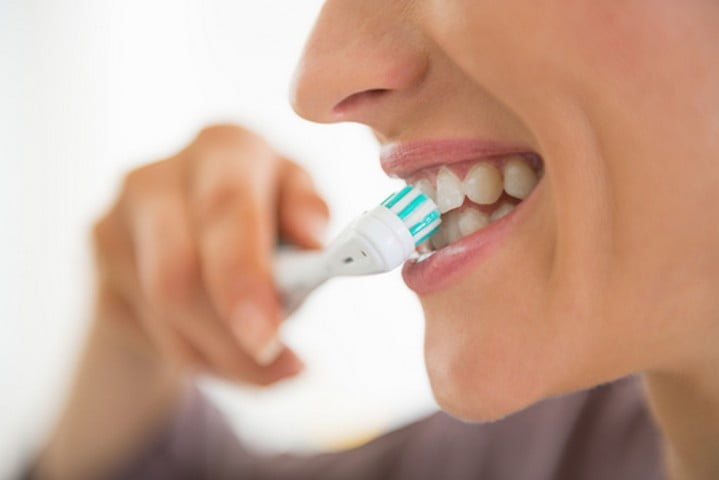Brushing your teeth twice a day removes plaque, protects your teeth, and maintains fresh breath. However, it is possible to brush your teeth with too much enthusiasm. Hard brushing has some potentially harmful side effects, especially for the enamel and gums.
Here are signs that you may need to be more gentle when brushing your pearly whites:

- Enamel Erosion – In time, brushing your teeth too vigorously can wear away at the enamel. Additionally, harsh brushing right after a meal or drinking acidic beverages can be problematic, causing the enamel to weaken. Eroded enamel can result in sensitive and discolored teeth.
- Sensitive Teeth – Aggressive brushing can wear down the enamel and expose the dentin, a sensitive layer of tissues. Eating or drinking hot and cold food/beverages can become painful when you have sensitive teeth.
- Receding Gums – Gum recession is a sign of periodontal disease that happens when the gums begin to pull back from the teeth. Eventually, it exposes the root of the tooth, resulting in sensitivity and potential tooth loss.
Fortunately, there is a correct way to brush the teeth and reduce the risk of developing these dental complications.
Here are some simple tips to keep your teeth healthy and bright:

- Use the Right Toothbrush – Avoid using hard-bristled toothbrushes. A soft-bristled toothbrush is effective in removing plaque and less likely to damage the enamel. They are also beneficial for people with sensitive teeth.
- Watch Your Brush – Replace your toothbrush every three months, or once the bristles start to fray. The worn out edges of the bristles can scrape parts of the teeth that are not meant to be brushed. if your toothbrush shows fraying after a month’s use, it can be a sign of aggressive brushing. Most importantly, choose a toothbrush approved by the Canadian Dental Association (CDA).
- Go Softly on Plaque – Plaque is an invisible, sticky film or mass of bacteria that thrives on the surface of the teeth. Eventually, plaque can develop into tartar, a harder, calcified form of bacteria that can cause cavities. However, it does not require aggressive brushing to properly remove plaque. Use gentle, small circular strokes to remove all harmful bacteria.
- Proper Brushing – When brushing your teeth, position the head of the toothbrush with its bristles at 45 degrees to the gumline and apply adequate pressure.
- Get a Regular Dental Checkup – Visiting a family dentist every six months is a great way to keep your oral health in check and prevent complications caused by over-brushing.
If you are experiencing the symptoms of rigid brushing, visit your dentist immediately to treat sensitive teeth, enamel erosion, and potential gum disease. Call Lambton Family Dental in Sarnia, Ontario at (519) 344-5747.

